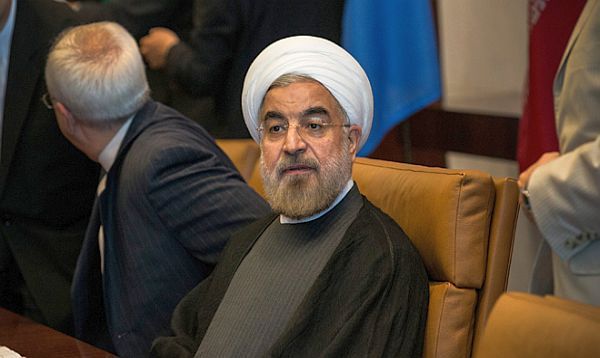Iranian President Hassan Rouhani has made a concerted effort to reach out to Western powers during his trip to the World Economic Forum in Davos, Switzerland last week, highlighting the Islamic Republic’s need for greater energy ties with Mexico and other Latin American countries – even broaching the topic of alleviating the country’s tense relations with the United States.
Speaking to a Swiss television outlet while in Davos, Rouhani said that it would be possible to turn around three decades of hostility between the US and Iran if both sides were willing to make the effort. He added that Iran would even be willing to consider the idea of the US reopening an embassy in the capital of Tehran.
"No animosity lasts eternally, no friendship either lasts eternally. So we have to transform animosities into friendship," he said. Currently the Swiss Embassy in Tehran represents US interests in the Middle Eastern nation.
Rouhani, who has attempted to ease international pressure that was heightened under his predecessor Mahmoud Ahmadinejad, said that talks and compromise on both sides could help put the dicey past relations between Iran and the US aside. "This effort is necessary to create confidence on both sides, he said. "Iran is, in fact, stretching out its hand in peace and friendship to all countries of the world and wants friendly, good relations with all countries in the world."
US President Barack Obama hailed earlier this month as an "important step" the announcement that a pact between the 5+1 Group – which includes the United States, France, the United Kingdom, China, Russia, and Germany – and Iran went into effect on January 20th, and promised "modest relief" of the current sanctions on Tehran if the Iranians keep their commitments under that pact, which was reached last November.
This is the "first time in a decade" that Iran has agreed to suspend work on its nuclear program, said Obama, adding that the agreement will help ensure that the nation does not build a nuclear weapon. The main focus of Rouhani’s trip to Davos was to woo foreign investors to Iran, which has a market of around 76 million people and some of the largest gas and oil reserves in the world.
Earlier in the week the chief of the Iran-Mexico Parliamentary Friendship Group met with the head of the Mexican Senate’s Foreign Relations Committee, Gabriela Cuevas Barron, in Tehran to discuss the expansion of energy ties between the two nations and in other parts of Latin America.
For its part, Mexico appears open to the idea of growing its relationship with Iran, despite the country’s poor relations with Mexico’s closest ally, the US. "The two countries’ abundant capacities in energy sector and automotive industry should be given due attention to help promote bilateral cooperation," Cuevas Barron said after Monday’s meeting, according to Iranian media.
In recent years, Iran has made headway in Latin America, thanks to anti-US leaders in countries like Venezuela, Ecuador, and Bolivia. Reports have also surfaced that Tehran is funding terrorist cells operating in the region, but any kind ofhard evidence on that has yet to surface.
Iran even launched a Spanish language television station in 2011 in what it describes as an effort to reinforce cultural ties with Spanish-speaking nations and help introduce Iranian traditions to Latin America.


